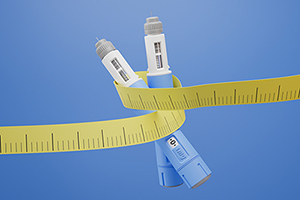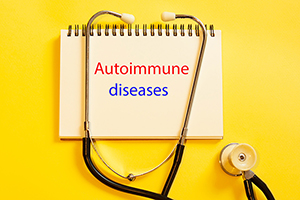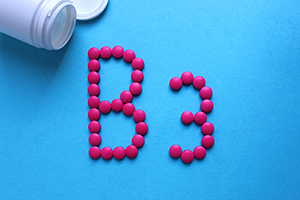



| By Dr. Ronald Hoffman
Last week’s op-ed by Dr. Dean Ornish in the New York Times, “The Myth of High-Protein Diets,” reminds me that I, too, was once a vegan; moreover, like Dr. Ornish, I was a vociferous crusader for my “cause.”
But unlike Ornish, who persists as a stalwart defender of a low-fat vegetarian diet, I kept an open mind, adapted my personal dietary approach, and modified my dietary recommendations to patients in the face of incontrovertible facts.
 After graduating fromcollege in the 70s I took a break before med school and got a job. I lived in bohemian Greenwich Village and began investigating juicing, fasting, raw foods diets, and eventually, Macrobiotics. This traditional Japanese Diet, minus the fish and animal protein, appealed to my idealism. It also upped the ante on government recommendations that we cut saturated fat and cholesterol—the new diet mantra of that era.
After graduating fromcollege in the 70s I took a break before med school and got a job. I lived in bohemian Greenwich Village and began investigating juicing, fasting, raw foods diets, and eventually, Macrobiotics. This traditional Japanese Diet, minus the fish and animal protein, appealed to my idealism. It also upped the ante on government recommendations that we cut saturated fat and cholesterol—the new diet mantra of that era.
I felt I derived health benefits from the diet, and detoxed from my years of poor eating, smoking, boozing and marijuana use while in college. I was lean and my cholesterol was a “desirable” 121 (now it’s 210 with an HDL of 80)! I acquired a measure of moral superiority for exercising the discipline and restraint required to follow such a restrictive diet.
When I started med school, I became a curiosity among my classmates for ostentatiously brown-bagging whole grains, leafy greens, tofu and seaweed. I even conducted Macrobiotic cooking classes in my cramped 5th floor walkup apartment (ever wonder how I cultivated my lecture skills?).
The ultimate challenge was to maintain this restrictive dietary regimen while undergoing my arduous medical residency at Bellevue and Manhattan VA hospitals, where food choices were pretty abysmal. But I stuck to my guns, and though I got a lot of ribbing from my fellow doctors-in-training, I never missed a day to sickness.
When I completed my residency training and started my private practice in 1984, my Macrobiotic credo gave me a ready-made toolbox. Overweight? Macro Diet! Cancer? Macro Diet! Heart Disease? Macro Diet! It also gave me a unique marketing edge—I was one of a handful of conventionally trained doctors recommending a vegan diet!
I presided over some miracles in those days. Like my patient with prostate cancer whose bone metastases appeared to melt away after a couple of years on the Macro Diet. Or the executive with a heart attack at 40 who lost 80 pounds and became a jogger while doing Macro.
But I was intellectually troubled by some things (facts have a nasty tendency to get in the way of profound convictions). Across town, Dr. Robert Atkins was performing similar miracles—with a diametrically opposed diet consisting of gobs of animal fat and protein, but no carbs. The Yeast Connection was published, underscoring the need for carb avoidance, and Omega 3 oils were first popularized as healthy fats.
It was around that time that I wrote my first book—The Diet-Type Weight-Loss Program (1988)—don’t look for it, it’s WAY out of print. But the point of the book was that different diets work for different people based on their genetics, their food preferences, and their medical conditions. And that’s an idea that has intrigued me to this day.
Soon afterward, I was forced to make profound changes in my personal diet approach. I developed an intractable body itch that required that I take antihistamines 24/7. After trying numerous supplements, and a yeast/dairy/wheat-free diet, I had a life-changing encounter with Dr. Nicholas Gonzales, a renowned alternative cancer practitioner in New York. He turned me on to the Kelly Program, which explained why diets needed to be individualized. A plant-based eating plan great for pancreatic cancer might be disastrous for an individual like me because I was already too alkaline! Dr. Gonzales encouraged me to eat lots of organic, grass-fed meat, poultry, eggs and butter, and I haven’t looked back.
My allergies are a thing of the past, I gained 20 pounds of healthy muscle, and my concentration is so much better.
And nutritional science has caught up with me. New findings suggest cholesterol is not the culprit it was once thought to be, saturated fat is not really bad, and carbs are being fingered as the prime villain in our current epidemic of cardiovascular disease.
I would marshal all the arguments to refute Ornish right here in this column, but I’ve already done so in a recent podcast. I encourage you to listen to it. Or you can read Dr. Michael Eades’ excellent critique of the Ornish op-ed.
I admire Dr. Ornish. He is a dedicated crusader for natural medicine, and he’s done remarkable research documenting the benefits of lifestyle modification in reversing disease—work that has credibilized our field immeasurably.
But I believe he’s a victim of “Paradigm Paralysis,” as I once was. In a scientific context, a paradigm is an accepted viewpoint that defines a researcher’s view of nature. In that sense, a paradigm can be good, because it helps develop a series of related hypotheses that can advance our understanding.
But paradigms impede scientific progress when they prevent us from thinking objectively and taking into account disparate or contradictory facts. The resulting intellectual inertia is called Paradigm Paralysis.
Underlying Paradigm Paralysis is a well-known human psychological trait called “confirmation bias.” This means that perception is molded by pre-existing beliefs. New data are verified as “facts” if they conform to a person’s template; those that refute the observer’s belief system are often not taken into account.
So let’s keep the diet debate going, but don’t fall for facile solutions—when it comes to diet, there aren’t any. Years of experience have humbled this EX-vegan. Thereafter and always, I will keep an open and inquisitive mind—and I urge you to do so, too.
Though we think of declining estrogen as the hallmark of menopause, it's actually common for…

Up to 12 percent of Americans have ulcers at some point in life. Peptic ulcers…
Gallbladder disease is a modern illness. An estimated 20 million Americans have gallbladder disease. The…

New, more powerful weight loss drugs: Drugs like Wegovy, Rybelsus, Ozempic and Mounjaro/Zepbound are revolutionizing…

According to the Lancet, autoimmune disease affects one in ten people globally and it’s now…

This past week we were regaled with headlines like: High levels of niacin may increase…

Leyla Weighs In: The Erosion of Trust in Nutritional Research

Our virtual voicemail is open 24/7, so there's no need to wait to submit your questions for Dr. Hoffman. Leave a message, and you may hear your question featured on the Intelligent Medicine radio program!